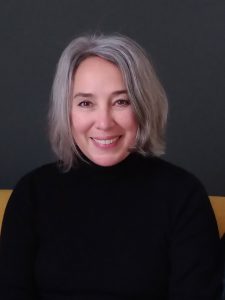Dr Julia Molinari PhD SFHEA
In December 2021, I joined the Open University (UK) Graduate School as a part-time Lecturer in Professional Academic Communication in English (PACE). I formerly taught and researched academic writing at the University of Nottingham, UK. This blog has been an integral and ongoing companion to my scholarship since 2013.  I completed my My PhD in 2019 under the supervision of Professor Pat Thomson (School of Education) and Professor Andy Fisher (Department of Philosophy) at the University of Nottingham, UK. In my thesis, I argued – using a critical realist lens – that what makes writing academic are its emergent socio-academic practices, not its constituent forms. A version of the thesis is now available as a monograph published by Bloomsbury Academic (2022).
I completed my My PhD in 2019 under the supervision of Professor Pat Thomson (School of Education) and Professor Andy Fisher (Department of Philosophy) at the University of Nottingham, UK. In my thesis, I argued – using a critical realist lens – that what makes writing academic are its emergent socio-academic practices, not its constituent forms. A version of the thesis is now available as a monograph published by Bloomsbury Academic (2022).
This research brings together my previous studies in philosophy and education, and re-iterates my commitment to interdisciplinary perspectives on knowledge. My thesis is available here and the book here.
My previous studies include:
- PGCTEAP (Post Graduate Certificate in Teaching English for Academic Purposes) from the University of Nottingham, UK
- MEd (Applied Linguistics) from the Open University, UK
- MA (Hons) Philosophy and Logic from the University of St Andrews, UK
- European Baccalaureat from the European School, UK
I am a Senior Fellow of the Higher Education Academy (SFHEA), a professional recognition of teaching and mentoring expertise in Higher Education.
I have over 25 years experience in EAP (English for Academic Purposes), research writing and academic translations, editing and proofreading. I’m bilingual English/Italian and fluent in French.
You can also find me on Mastodon and BlueSky (my personal accounts) and, reluctantly, on X (my institutional account)
Could you comment on the relevance of the “critical realism” perspective to study of vocabulary. It appears to me that sciences assume they can explore stipulated meanings to guide their research, while at the same time claiming that their research is relevant to the public guided by the ordinary language meaning of key terms.
Hello RObert, thanks for your comment. I’m not sure I fully understand your request though. For example, what do you mean by “sciences assume they can explore stipulated meanings to guide their research” and why/how does this contrast (“while”) with using ordinary language to engage the public. Critical realism isn’t a linguistic theory (it is a philosophical, sociological and scientific one) but I suppose it does have implications for language. Thanks for helping me to understand the context of your comment further, Julia